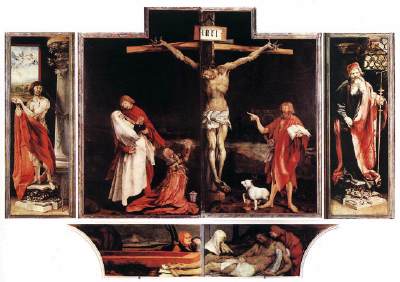Sermon on the Mountain, Károly Ferenczy, [Web Gallery of Art]
Readings (New American Bible: Philippines, USA)
Readings (Jerusalem Bible: Australia, England & Wales, India [optional], Ireland, New Zealand, Pakistan, Scotland, South Africa)
Gospel Matthew 4:12-23 [or 12-17] (NewRevised Standard Version, Anglicised Catholic Edition)
When Jesus saw the crowds, he went up the mountain; and after he sat down, his disciples came to him. Then he began to speak, and taught them, saying:
‘Blessed are the poor in spirit, for theirs is the kingdom of heaven.
‘Blessed are those who mourn, for they will be comforted.
‘Blessed are the meek, for they will inherit the earth.
‘Blessed are those who hunger and thirst for righteousness, for they will be filled.
‘Blessed are the merciful, for they will receive mercy.
‘Blessed are the pure in heart, for they will see God.
‘Blessed are the peacemakers, for they will be called children of God.
‘Blessed are those who are persecuted for righteousness’ sake, for theirs is the kingdom of heaven.
‘Blessed are you when people revile you and persecute you and utter all kinds of evil against you falsely on my account. Rejoice and be glad, for your reward is great in heaven.’

Isenheim Altarpiece (First View), Matthias Grünewald
Quicumque enim vult perfecte vivere, nihil aliud faciat nisi quod contemnat quae Christus in cruce contempsit, et appetat quae Christus appetiit.
Whoever wishes to live perfectly need do nothing other than despise what Christ despised on the cross, and desire what Christ desired. (St ThomasAquinas).
In the video below Fr Robert Barron (now Bishop Barron, Auxiliary of the Archdiocese of Los Angeles) offers a reflection on the Beatitudes based on St Thomas Aquinas and the painting of the Crucifixion by Matthias Grünewald, part of the Isenheim Altarpiece (First View).
Fr Barron uses the word ‘happy’ rather than ‘blessed’. The Jerusalem Bible uses ‘happy’ but the New Jerusalem Bible returned to the more widely used ‘blessed’. However, Fr Barron explains elsewhere: The Greek term in Matthew’s Gospel is makarios, which is probably best rendered with the simple word ‘happy’. The law that the new Moses offers is a pattern of life that promises, quite simply, to make us happy.
Fr Barron’s words reflect those of St Paul: When I came to you, brothers and sisters, I did not come proclaiming the mystery of God to you in lofty words or wisdom. For I decided to know nothing among you except Jesus Christ, and him crucified (1 Corinthians 2:1-2).
They reflect the words of Jesus himself: for I have come down from heaven, not to do my own will, but the will of him who sent me (John 6:38).
They reflect the words of Bishop Edward Galvin of Hanyang, China, Co-founder of the Missionary Society of St Columban to which I belong: We are not here to convert China but to do God’s will. The Columbans were founded to preach the Gospel in China but experienced a real sharing in the Crucifixion of Jesus and were all expelled by the early 1950s, including Bishop Galvin himself. (Columbans are working again in China in very different circumstances).
The late Swiss theologian Fr Hans Urs von Balthasar writes in his book Light of the World about today’s gospel: What Jesus says here in programmatic fashion is no generalized morality that anyone could understand, rather, it is the pure expression of his most personal mission and destiny. He is the one who has become poor for our sake, who wept over Jerusalem. He is the nonviolent one against whom all the world’s violence rages and is shattered. He is the one who hungers and thirsts for God’s justice, who reveals and accomplishes God’s compassion on earth. He has the pure heart that always sees the Father; he is, as Paul says, ‘our peace’ by virtue of having destroyed enmity with his crucified body (Ephesians 2:14-17). He is the one who is persecuted by the entire world because he has incarnated God’s righteousness. In all of these he is the blessed one because he perfectly incarnates and mediates the salvation God intends for the world. He exults in this even in the midst of tribulation in the world (Luke 10:21) and he will eternally exult in this as the One who returns to the Father with his mission accomplished. He begins his ministry of proclamation with a self-portrait that invites his listeners to follow him.
God wants us to be our brother’s keeper. To feed the hungry, to clothe the naked, to shelter the homeless, to instruct the ignorant, at a personal sacrifice, is what God wants us to do. What we give to the poor for Christ’s sake is what we carry with us when we die. As Jean-Jacques Rousseau says: ‘When man dies he carries in his clutched hands only that which he has given away’. Peter Maurin.
Blessed are you when people revile you and persecute you and utter all kinds of evil against you falsely on my account. Rejoice and be glad, for your reward is great in heaven.
Les Béatitudes – The Beatitudes sung in French

